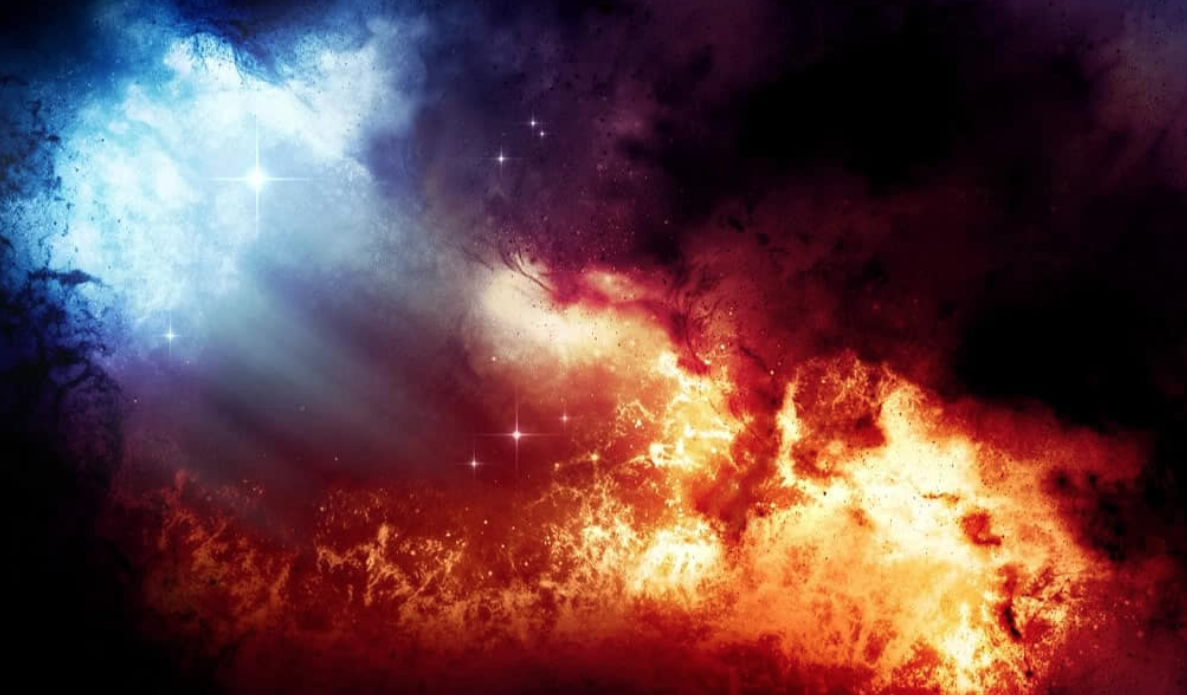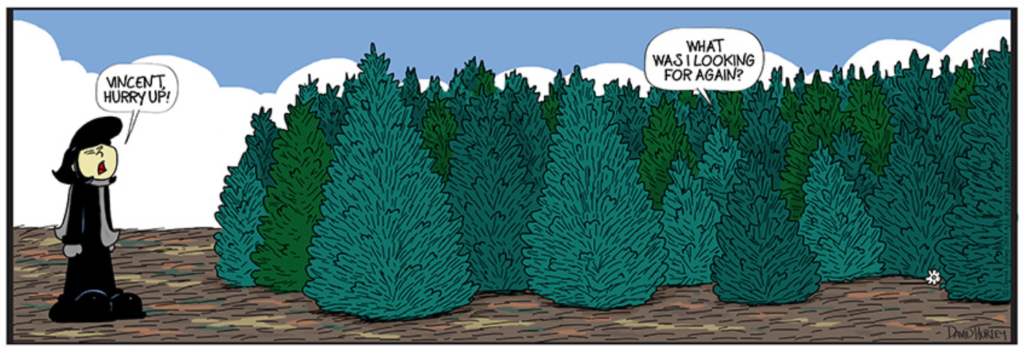
We yearn for a deeper context, yearn for a deeper sense of connection that is inherently spiritual
In my life, I have noticed that if I’m in a contracting and frustrated state, sooner or later it will pass. That seems to be a fact. And when it passes, it is usually only a sense of finding back to who I really am. And who I really am is never the ego, the story that is going on in my head, my thinking or the situation or person that seems to be the cause of my frustration.
I love the term: seeing the forest for the trees. I love how it accurately points to the fact that the trees work together. They are dependent on each other, it’s never just that one tree (one perspective) that encompasses the whole image. In that sense, it can be good to see that the same goes for one human. One person, one ego, can not possibly grasp the entirety of truth.

When we fall back into letting go of the concept of irritation we were tripping on, we let go of the ego. We stop taking ourselves personally and seriously. We wake up to a sense of innocent newness. Love. We now can start seeing opportunities and potential that were previously hidden behind dual concepts of what is right and wrong.
A while back I found an interesting older video of a guy explaining this raise of consciousness (seeing the forest for the trees) in a witty way, only from a cultural evolution. I had made some notes, but couldn’t find the video… That is until now!
If you’re able to somehow overlook this guys haircut (lol), I believe you can find some really interesting insights in what he says. I’ll include my notes below for extra value.
Notes:
Egocentric – “Only I exist”
Mythocentric – All the great traditions share stories of their own creation story. So when we share a creation story, we feel connected from just our own bloodline to everyone who shares our particular (religious?) worldview.
Nationcentric – Strong sense of national identity.
worldcentric – When the individual realizes that first and foremost is a human being. A member of the human species. A citizen of the world. A member of the human family.
Cosmocentric – When we start to see our own capacity for consciousness and cognition as a product of this deep time developmental process, then we begin to see everything that happens (including everything that’s happening on a global scale) from the perspective of the evolving cosmos.
The bigger our perspective the more inclusive our way of thinking is going to be and less exclusive.
And of course, the more human beings who have a capacity to think in more inclusive ways, we’re gonna be thinking about our problems, not just in a narrow perspective in terms of a particular group of people, but more in a global context and not
We are seeing a shift in consciousness because of globalisation (instant communication) and challenges like global warming. People have to think more worldcentric and cosmocentric. Cause from the perspective of global warming we’re all in the same mess.
“I also feel that many people that are product of this post modern secular cultural environment you know, with values that are basically based on materialism and narcissism, do yearn for a deeper context, yearn for a deeper sense of connection that are inherently spiritual. In order to find a source of strength, a source of connectedness and a source of power. Empowerment. In order to live this life with courage and passion.”
Concluding thoughts…
From a perspective of separation, a so-called dual perspective, my beliefs match Andrew’s beliefs. There is one interesting notion, however, I’ve come to realize; a baby’s understanding starts out less egocentric but more aligned with oneness. Although we don’t fully understand it intellectually, it IS true that “only I exists”. We are life itself. So going the full circle, it seems “we are born from consciousness”, there is the illusion of an ego, and the journey home begins. A baby does not know the concept of separation until it is conditioned to believe in the ego. A newborn baby only knows conceptless love. Oneness. Truth.
The habitual belief of separation is inherited to the child through conditioning and then we start identifying with our head, body, and thoughts. The ego. The story of who we think we are. Not who we really are.
So who are we really? Who are you? Arguably the only question that matters. And to go back to Andrew Cohen, seeing the forest for the trees and having a cosmocentric view seems to loosen up the small-thinking of the illusion of the ego, and we are freer to live without as much suffering. Or at least understand the suffering, so we can observe it pass.

